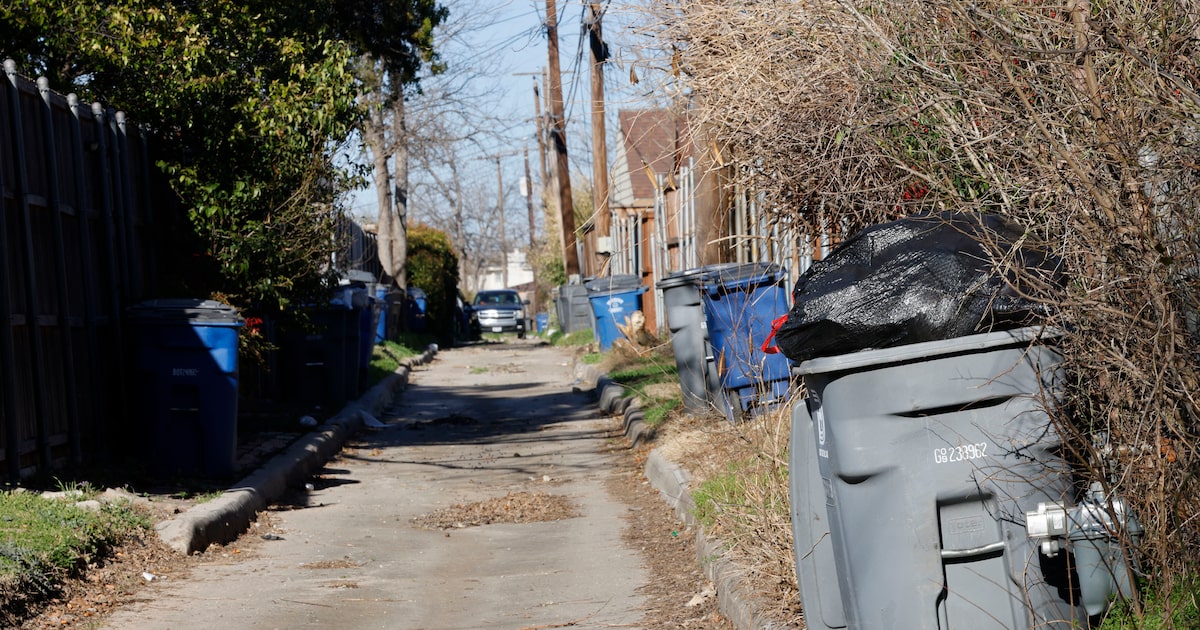For the second time in two years, Dallas has delayed its plan to end alleyway trash and recycling pickup for thousands of households after strong resident opposition.
City Manager Kimberly Bizor Tolbert announced Wednesday that the phaseout, originally set for January, is now on hold. She said she ordered the sanitation director to explore other options for keeping alley service in areas where residents want it.
“We hear you, and change is hard,” Tolbert said in a statement. “I’ve asked the staff to reconsider, review and reevaluate all the available feasible options and think creatively about solutions that may be workable.”
Tolbert said the Sanitation Department will conduct a survey in October and November to gauge resident interest in continuing alley service. One option being considered is using private trash collection companies, which might charge higher rates for customers.
Political Points
The city had planned to end alley service for about 26,000 households starting in January, citing worker safety risks, property damage and high costs. Dallas currently serves over 261,000 sanitation customers, with roughly 95,000 — about 36% — still using alley collection, mostly in northeast, northwest and Far North Dallas. The phaseout would affect alleys narrower than 9 feet, dead-end alleys longer than 200 feet and unpaved alleys, especially in areas where most homes have front driveways.
With this temporary pause, Tolbert said the scope of evaluation has expanded to include all 44,000 customers who live along 8- and 9-foot alleys citywide.
As of Wednesday, an online petition calling for city officials to reject the cancellation of alleyway trash collection had gathered more than 10,600 signatures.
Residents argue that alleys were designed to keep streets clean and safe, and many, particularly seniors and people with disabilities, worry about the difficulty of moving heavy bins from the back of their homes to the curb.
The delay comes after Deputy Mayor Pro Tem Gay Donnell Willis and council member Paula Blackmon last month called on Tolbert to pause the phaseout. They asked for the city to create a way for residents who want alley service to keep it, and set an Oct. 1 deadline for a response.
The sanitation director has the authority to decide alley access under city rules, so the plan didn’t need City Council approval.
“I appreciate that the City Manager is pausing the alley-to-curb transition to allow residents to allow further evaluation of the program,” Willis said. ”Worker and property safety is critical, and residents should have the opportunity to bring their alleys into compliance so they can retain service there if they want it.”
Blackmon said she wanted to further review Tolbert’s statement before responding.
The city first proposed ending all alley collections in 2024, but also paused after public outcry.
In a September memo to the mayor and City Council, Tolbert said a city analysis found that continuing alley service for the 26,000 affected households would cost between $69.87 and $80.81 per month — up from the current $39.73 for all sanitation customers.
Maintaining alley service would also require purchasing 100 more trucks and hiring 300 additional workers, she said.
